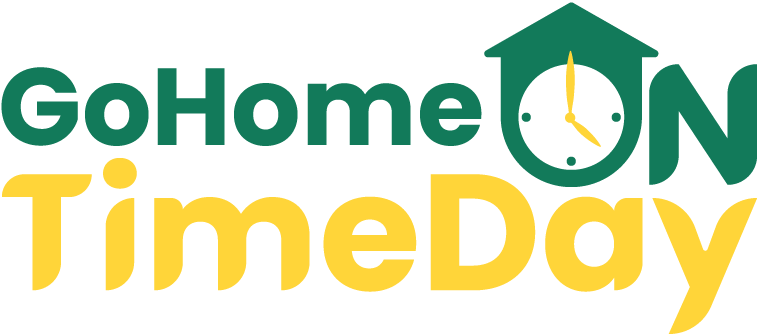Greetings, everyone! I’m thrilled to explore the authentic meaning of “Being Productive”. It connotes more than just enthusiasm or chores on your agenda—it symbolizes a way of living.
I’ll help you understand its importance, learn how to beat procrastination, and master time management.
We’ll also explore how productivity can influence wider social and work-setting systems.
Ready to cultivate a culture of productivity? Let’s get started!
Key Takeaways
- It is about achieving desired outcomes efficiently and can apply to both personal and professional spaces.
- Productivity means you can have positive mental and emotional connotations, such as a sense of accomplishment and improved self-confidence.
- Efficiency and effectiveness are important factors in defining productivity and streamlining tasks can improve it.
- It is important for mental health, personal well-being, work performance, and personal growth, and can help foster a healthier work-life balance.
What Does It Mean to Be Productive?

So, what does it mean to be productive?
It’s more than just staying busy; it’s about how we define productivity in both our personal and professional lives.
We’ll look at the mental and emotional aspects, as well as the roles efficiency and effectiveness play in being productive.
Defining Productivity Within Personal and Professional Spaces
In my exploration of productivity, I’ve found it’s crucial to define what being ‘productive’ truly means within both personal and professional spaces.
Essentially, being productive means achieving desired outcomes efficiently. In the personal realm, it can look like accomplishing duties that bring you closer to your goals or enrich your life. This is what I refer to as personal productivity.
In professional spaces, it typically means getting your work done in a way that adds value to your organization. Defining it within personal and professional spaces is a key step towards understanding how to improve it.
When working from home, you’ll be able to redefine how you approach your tasks. It’s important to recognize that people may face unique challenges when working remotely, such as spending time on various distractions or feeling isolated. However, with the right strategies and mindset, you’ll get better at it.
The Mental and Emotional Connotations of Productivity
While I’ve touched on the basic definitions of productivity, it’s equally important to delve into the mental and emotional connotations attached to being productive.
To be productive isn’t simply about ticking off duties and achieving goals; it’s also about the feeling of achievement that comes with it. This sense of achievement can lead to improved psychological health, as it often brings about an enhancement in self-confidence and self-esteem.
However, the emotional connotations aren’t always positive. The pressure to stay productive can sometimes be overwhelming, leading to stress and anxiety.
Hence, it means striking a balance between getting things done and maintaining a healthy state of mind. Being productive should uplift you, not weigh you down.
The Role of Efficiency and Effectiveness in Productivity
Balancing efficiency with effectiveness, I’m now shifting my focus to the crucial role that they both play in increasing productivity. Efficiency refers to how well I can accomplish a task with minimal resources, while effectiveness is about achieving the desired result. They’re the two main gears that drive its engine.
To become more productive, I must consider:
- How to streamline my tasks to improve
- Why it’s important to focus on quality over quantity
- The impact of effective and efficient task management
- Strategies to balance efficiency and effectiveness
In essence, productivity isn’t just about doing more; it’s about accomplishing what’s necessary in the most efficient and effective way.
One study suggests that focusing on your hobby can also help improve your overall productivity.
So, when you’re trying to be more productive, remember that it doesn’t matter how much you do; what matters is how well you do it and how satisfied people don’t feel overwhelmed in the process.
Why Productivity Is More than Just a Buzzword: The Importance of Being Productive

Productivity isn’t just a trendy term; it’s a key component in our personal and professional lives.
It has a profound effect on our mental health and personal well-being, while also being a major driver of performance and satisfaction at work.
Plus, it’s a cornerstone for personal growth and development, acting like a catalyst that propels us forward.
Productivity Impacting Personal Well-Being and Mental Health
I’ve noticed that my personal well-being and mental health significantly improve when I’m being productive. There’s just something fulfilling about accomplishing tasks in a productive way. It not only enhances my overall productivity levels but also my sense of self-worth.
- Being productive helps clear my mind, reducing stress and anxiety.
- It provides a sense of achievement, enhancing my self-esteem.
- It can be a vehicle for personal growth and development.
- Regular productivity can foster a healthier work-life balance.
The Power of Productivity in Boosting Workplace Performance and Satisfaction
During my time in various work environments, I’ve consistently found that productivity isn’t just a corporate buzzword, but a powerful tool that can dramatically enhance both performance and satisfaction.
The most successful environments are those that harness its power, fostering an environment where productive people thrive. These are the places where a concerted effort to increase results in higher work performance, leading to a significant enhancement in overall satisfaction.
It’s not just about getting more done in less time. It’s about the quality of the work environment and the sense of achievement that comes from knowing you’ve contributed to a successful outcome.
In essence, being productive isn’t just about working hard – it’s about working smart. Learning a new skill can help you get more insight and increase your productivity, making sure that you achieve your goals efficiently.
When you’re productive, it’s easy to get what needs to get done and still have free time for yourself, which has a positive impact on your overall satisfaction. Don’t let distractions distract you from realizing the feeling of accomplishment that comes from being productive in your work environment.
How Productivity Fosters Personal Growth and Development
In the realm of personal growth and development, I’ve discovered that being productive goes beyond just ticking off tasks on a to-do list. It’s about intelligently directing my energy to achieve my goals. Every productive day contributes significantly to my personal growth.
Here’s why:
- Completing tasks gives me a sense of achievement and enhances my self-confidence.
- Focusing on the task at hand improves my attention span and hone my problem-solving skills.
- Consistently working towards my goals fosters discipline and resilience.
- Reflecting on my progress helps me identify areas for improvement and plan strategically for future tasks.
Indeed, being productive isn’t just a buzzword; it’s a vital ingredient in the recipe for personal growth and development.
Overcoming Procrastination: Embracing Productivity in Your Daily Routine

Let’s tackle procrastination head-on and figure out how we can turn it into productivity.
We’ll first look at why we procrastinate and then share strategies that’ll help us avoid this trap.
The ultimate goal is to change our perspective and redefine what a productive workday truly means to each of us.
Identifying the Triggers: Why Do We Procrastinate?
Often, I’ve noticed that delaying sneaks into my routine when I’m feeling overwhelmed or uninspired. It’s a distraction, a way to delay dealing with tasks I find daunting or uninteresting. Identifying the triggers that cause me to procrastinate is the first step towards overcoming this unproductive habit.
Here are a few common triggers:
- Lack of motivation: When the task at hand doesn’t excite me.
- Fear of failure: The worry that I won’t succeed can make me avoid starting.
- Overwhelm: When the task seems too big to tackle.
- Lack of clarity: Uncertainty about how to start or proceed with a task.
Simple Strategies to Avoid Procrastination and Boost Productivity
I’ve come up with a few handy strategies to help me cut down on delay and amp up my daily productivity.
Making a to-do list is my first step. It keeps me on track, helping me stay focused on my tasks and meet my deadlines. This simple strategy to avoid delay and improve productivity gives a clear picture of what needs to be done.
Assigning a priority level to each task is another great tactic. It ensures that my energy is dedicated to the most crucial tasks first, preventing last-minute scrambles. Remember, overcoming it isn’t about rushing through tasks, but about creating effective systems.
Changing Perspective: Redefining Productive Workday
In my quest to overcome delay and embrace productivity, I’ve realized that changing my perspective and redefining what a productive workday looks like can make a world of difference.
It’s not about sticking to the dictionary definition of ‘productive.’ Instead, it’s about:
- Seeing the workday as a series of small victories
- Embracing the idea that not all work is visible
- Understanding that rest and recovery are parts of productivity
- Recognizing the value of planning and strategizing
Optimal Time Management: Mastering the Key to Boost Productivity

Now, let’s talk about time organization.
I believe that good time organization practices can be the key to enhancing your productivity.
We’ll discuss how to set priorities, the importance of taking breaks, and how to find the balance that works for you.
What Are Good Time Management Practices and Why Are They Key?
While we’re often aware of the need for good time organization practices, it’s crucial to understand why they’re key to enhancing our productivity. Effective time organization helps us prioritize and get more done in less time.
Here are some ways to improve:
- Prioritize: Focus on the important things first. This will provide a sense of accomplishment and reduce stress.
- Plan: Use tools to schedule tasks and deadlines. This helps to keep track of everything.
- Avoid multitasking: It’s better to concentrate on one task at a time. This enhances efficiency and quality of work.
- Take breaks: It’s important to rest to maintain productivity levels.
Setting Priorities with Your To-Do List to Enhance Productivity
I’ve discovered that harnessing the power of prioritization and integrating it into my daily to-do list, significantly enhances my productivity levels. When I set rankings, I effectively manage the amount of work, ensuring I get things done in a timely manner.
My to-do list becomes a powerful tool in my arsenal, rather than an overwhelming burden. By categorizing tasks based on their importance and urgency, I’ve realized I can focus on what truly matters, instead of getting bogged down by insignificant tasks.
This approach saves time, reduces stress, and most importantly, enhances productivity. So, in mastering the key to optimal time organization, setting rankings is the game-changer that’s helped me elevate my productivity substantially.
The Balance of Taking Breaks: Maximizing Productivity Without Burnout
In my pursuit of productivity, I’ve found that maintaining a balance between work and regular breaks is crucial, and it’s a key strategy to avoid burnout. The balance of taking breaks can be a delicate task to master but it’s critical for maximizing.
Here are some tips I’ve learned:
- Don’t wait until you’re exhausted to take a break. Proactively schedule them throughout your day.
- When taking breaks, do something that truly relaxes you. This could be a walk, a quick meditation, or just enjoying a cup of tea.
- Keep your breaks short and sweet. A 5 to 15-minute break can do wonders.
- Lastly, remember that breaks aren’t squandered time. They’re a tool that helps you work smarter, not harder.
Cultivating a Culture of Productivity: Applying It to Wider Social and Workplace Systems

Let’s now turn our attention to how we can foster a culture of productivity, not just individually, but within our broader social and work environment systems.
We’ll look at how leadership can play a significant role in promoting productivity in work, and how creating an environment that minimizes squander and maximizes efficiency can significantly enhance it.
We’ll also touch on the importance of reinforcing productivity through rewards for efficiency and penalties for time misallocation.
The Role of Leadership in Promoting Workplace Productivity
I’m going to delve into the pivotal role that leadership plays in fostering a culture of productivity within both social and work-setting systems.
The role of leadership is crucial in promoting it, and there are several key ways they can achieve this.
- Leaders can alleviate stress, creating a more conducive environment.
- They can motivate employees, fueling their drive to achieve more.
- Leaders can celebrate every accomplishment, big or small, fostering a sense of pride and ownership.
- They also have the power to create a culture that values productivity, setting expectations, and providing the necessary resources and support.
Leadership, then, isn’t just about giving orders. It’s about creating an environment where efficiency thrives.
Creating a Productive Environment: Minimizing Waste and Maximizing Efficiency
Why not explore how we can create a productive environment by minimizing waste and maximizing efficiency, and how this can be applied to wider social and work setting systems? To avoid squandering and increase efficiency, we ought to streamline processes and set clear goals. I’ve found that having an organized, clutter-free workspace aids in thinking clearly.
Here’s a simple table outlining two key areas, each with an associated action and benefit:
| Area | Action | Benefit |
| Workspace | Declutter | Increases focus |
| Processes | Streamline | Reduces waste |
Reinforcing Productivity: Rewarding Efficiency and Discouraging Time Misallocation
I believe it’s essential to reinforce productivity by rewarding efficiency and discouraging time misallocation, especially when we aim to cultivate a culture that’s applicable to wider social and work-setting systems.
This can be achieved by:
- Recognizing individuals who consistently meet targets.
- Creating a rewards system that acknowledges efficiency, encouraging everyone to give their best.
- Implementing policies that discourage wasting time, preventing time misallocation.
- Setting a certain amount of time for breaks to ensure rest.
With these measures, we not only encourage efficiency but also promote a healthier and more balanced approach to productivity. Remember, it’s not just about doing more but doing better.
Frequently Asked Questions
How Can Productivity Be Measured in Different Professions?
In measuring productivity across various professions, I’d look at output relative to input. It’s about how efficiently resources are used. Different professions, though, require unique metrics due to diverse job responsibilities and goals.
What Role Does Technology Play in Enhancing Productivity?
In my experience, technology significantly enhances productivity. It automates duties, reduces errors, and accelerates processes. It’s a game changer, making it possible to achieve more in less time. It’s truly revolutionized the way I work.
Can Excessive Focus on Productivity Lead to Burnout?
Overemphasis on productivity can lead to burnout. I’ve experienced it firsthand. It’s essential to balance work and rest, otherwise, incessant striving for output may lead to exhaustion, reducing overall effectiveness.
How Can Productivity Techniques Be Tailored for Individuals With Different Learning Styles?
I believe tailoring productivity techniques to individual learning styles is crucial. It’s about understanding one’s unique strengths and adapting methods accordingly. Visual learners might use diagrams, auditory learners could benefit from podcasts, and kinesthetic learners from practical duties.
What Are Some Examples of Productivity Myths That Have Been Debunked?
Some debunked productivity myths I’ve encountered include multitasking leading to efficiency, or that we’re more productive under pressure. They’ve been proven false, as focus on single duties and stress-free environments often enhance productivity.
Conclusion
So, being productive isn’t just about ticking off tasks. It’s about managing time wisely, overcoming delays, and fostering a culture that values productivity.
And remember, productivity doesn’t stop with you. It’s a lifestyle, a mindset, and it’s contagious. Spread it around, apply it to your work, and your society, and see the difference it makes.
Let’s make productivity more than just a buzzword, let’s make it a way of life.

